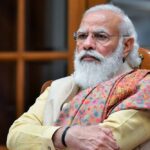On July 18, Economic Affairs Secretary Ajay Seth said that the first volume of the study by the Larry Summers and NK Singh-led panel on strengthening multilateral development banks would be made public.
On July 13 in Gandhinagar, Seth told reporters that the first volume of the report would be handed to G20 Finance Ministers and Central Bank Governors at their third meeting while India holds the presidency.
The meeting, which will take place on the 17th and 18th of July, will be co-chaired by Nirmala Sitharaman, India’s Minister of Finance, and Shaktikanta Das, India’s Governor of the Reserve Bank of India. On July 14 and 15, G20 finance and central bank deputies will meet in preparation for the next summit, with Seth and RBI Deputy Governor Michael Patra serving as co-chairs.
In February, at the inaugural conference of finance ministers and central bank governors in Bengaluru, India proposed the formation of the Summers and Singh-led group. There are seven additional members of the expert panel in addition to Summers (a former US Treasury secretary) and Singh (15th Finance Commission chairman).
The group’s mission is to create a plan for a “updated MDB (multilateral development bank) ecosystem for the 21st century” that will help these banks better support a variety of SDGs and global concerns like climate change and health.
India had been vocal about the need to restructure multilateral development banks, claiming that they were in a precarious position even before it took over the G20 chair in late 2022.
At a briefing on July 13 in Gandhinagar, Chief Economic Adviser V. Anantha Nageswaran said that forums like the G20 are useful because they allow leaders from different countries to debate topics like the reform of these institutions, which affect all of them.
We are aware that the World Bank and other organisations have helped finance numerous projects in Gujarat. However, we are also aware that there are current concerns that necessitate support for climate-specific infrastructure in addition to more traditional forms of infrastructure. Therefore, Nageswaran argues, countries need more resources, lenders need more resources, and lenders need to modify the way they operate.
A few times a decade, “institutions have to reinvent themselves,” the government’s top economist added.
Agenda list
The ‘guide note’ for creating a globally coordinated framework for the regulation and supervision of crypto assets will be given to the finance ministers and central bank governors as another significant agenda item requiring multilateral collaboration.
With some G20 members suggesting a complete ban on crypto should be considered, crypto regulation has emerged as a central tenet of India’s G20 Presidency. RBI Governor Shaktikanta Das made this statement in February.
According to a government statement, other major outputs include developments in the debt treatment for countries under the common framework, recommendations on promoting financial inclusion and productivity gains through digital public infrastructure to achieve last-mile financial inclusion, and principles for financing the cities of the future.
The international financial architecture, international taxes, the financial sector, and financial inclusion will all be up for discussion during the summit.
An Infrastructure Investors’ Dialogue on leveraging funding and financing mechanisms and approaches for the ‘Cities of Tomorrow’ in GIFT City in Gandhinagar; a high-level tax symposium on combating tax evasion, corruption, and money laundering; a roundtable discussion on crypto assets; and workshops on interlinking fast payment systems and achieving growth-friendly financial inclusion are just some of the events that will be held alongside the G20 meetings.
Read Also : Our results for the first quarter fell short of projections. C. Vijayakumar, CEO of HCLTech




